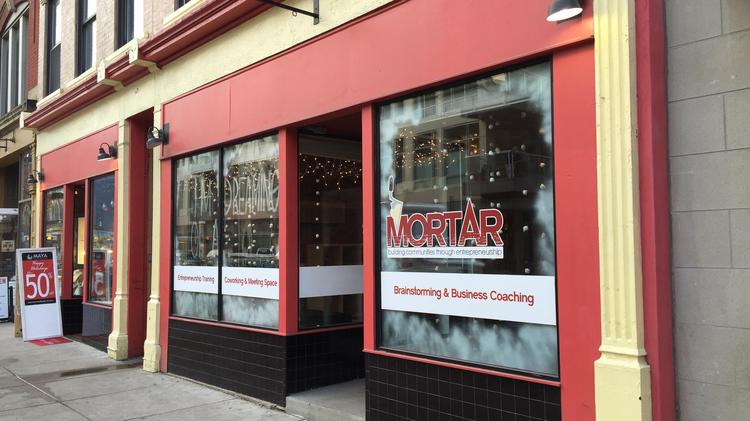ENGL 305: Professional Writing
Course: ENGL 305: Professional Writing.
Instructor: Renea Frey, Ph.D.; Jeffery Gerding,
Ph.D. Partner: MORTAR
Going Pro
All businesses start with a simple idea. Then, bricks are placed upon bricks, mortar is put between, a firm foundation is built, and an amateurish spark of inspiration can become a professional business. Of course, everything needs to be written out first.
MORTAR is a non-profit located in Over-the-Rhine that’s designed to transform ideas into small businesses. Since their founding in 2014, MORTAR’s goal has been to create diverse communities by enabling historically marginalized entrepreneurs to access the resources needed to start and successfully run their business. To do that, MORTAR provides a 15-week course to help existing and aspiring entrepreneurs learn the nuances of managing their business and make the transition from dreamers to seasoned professionals.
Professors Renea Frey and Jeffrey Gerding have integrated service learning into their Professional Writing (ENGL 305) courses to help these business owners do exactly that.
“Some people want help either updating or designing websites, other people want business cards or stickers or brochures,” Frey said. “In some cases, there are people who are looking to write grants or proposals for different programs that they’d like to explore.”
While MORTAR explicitly focuses on the people involved in their 15-week course, they also offer some support to graduates of the program, and this is where Frey and Gerding stepped in. At the beginning of the semester, the two compiled a list of services and different kinds of writing their students would learn in the class and passed it along to MORTAR’s Alumni Manager, Karla Dunn.
Alumni from the program then decided what writing services they needed, and students were placed in groups and instructed to get to work with both their partners in the class, and their clients. Now, students are putting into application the skills that they are learning in class in a world that extends beyond Alter Hall.
The relationship is a reciprocal one, so not only are students getting the chance to learn, but small business are getting the chance to expand in ways that they otherwise would not have been able to access.
“I think that it is an awesome opportunity for our alumni to take advantage of services that they may not be able to afford at this time, or at the time that they participate in their programs,” Dunn said. “In terms of making an investment in the community, I commend Xavier for making that opportunity available pro bono.”
The class is doing more than just investing in the community, according to Frey. They are also investing in themselves by learning new skills and have actual real-world, immersive experiences.
“Instead of just making these documents just for me to grade and use in this artificial setting, they’re out in the real world setting with real clients, having face-to-face meetings with them, figuring out what they want, making progress reports and project memos and sending them back and forth,” Frey said. “They’re actually getting the experience of what it would be like to create these documents for actual people.”
